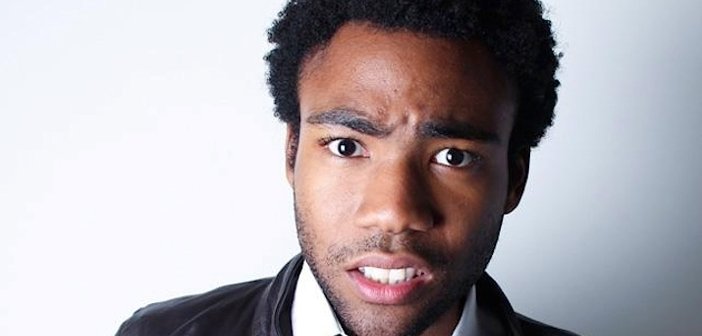TV Feature | Smashed Screens and Social Capital in FX’s Atlanta
In the first two episodes of Atlanta, the new FX TV show created by Donald Glover, a variety of topics that are not seen on television regularly are showcased: co-parenting, discrimination against trans women, and cracked iPhone screens.
Smashed phone screens are a part of life in the 21st century, and reflect characteristics about their owner: recklessness, clumsiness, and a lack of financial ability to either insure or replace the phone are all assumptions that are made by simply observing them. If you’re responsible, you will layer your phone in unbreakable phone cases and screen protectors, but that often affects the functionality – the whole point of a smartphone is its ability to instantaneously connect you with the world, and even a split-second delay could cause that perfect Tweet to leave your mind.
Damaged screens affect functionality, too, but they offer a different representation of character than a predilection for swaddled hardware: you might be broke, but you’re not going to cut yourself off from the world and replace your expensive device with a brick of a phone that is cheap, durable and can’t Instagram. In the first episode, when Earn (Donald Glover) first sees his cousin, Paper Boi’s (Brian Tyree Henry), debut music video, it is through a cracked screen. We already know Earn is broke – he can’t afford rent and he isn’t getting any sign-ups at work – but the fact he sees his opportunity to get out of his current situation through this particular screen highlights why we continue to deal with broken screens. If you’re trying to facilitate any sort of creative hustle, you need a smartphone. This isn’t usually represented in television’s somewhat idealised world.

In the second episode of the show, Paper Boi encounters the strange nature of celebrity. He doesn’t even make it out of the police station without a cop stopping him and asking for a photo. The visual humour of this scene comes from the police officer enthusiastically demonstrating different poses and discussing “Instasluts” while Paper Boi stares blankly ahead. The cop’s thirst for likes and shares feeds into the visual motif of cracked phone screens; he can access social capital through financial capital because Instagram photos exist within a capitalist structure. To distribute a photo, the user must have access to a smart phone/tablet, a Wi-Fi connection, and the smart phone must be linked to some form of app purchasing software that will allow the user the access to Instagram.
Steven Shaviro, a cultural critic and philosopher, has written about how capitalism has grown to include everything, including activities that have aesthetic value, such as art. When everything we do relates to capitalism, everything we do is work. The police officer has access to Instragram presumably through his engagement in labour and the structures of capitalism. This engagement with the structures of labour continues through the act of distributing the photo, where the labour of providing a photo is rewarded with likes and shares – but only if the user has provided labour that is considered good or worthy of praise, hence the different poses. Paper Boi’s celebrity can be used as a way for the police officer to create his own digital celebrity.
When Paper Boi leaves the station, he comes face to face with the creation of his star image. A star image is a collection of publicly available content about a celebrity, along with a celebrity’s body of work, according to the film critic Richard Dyer. In Paper Boi’s case, it is both his rap song and the fact he shot and wounded a man. Paper Boi encounters this when he comes across a mother berating her son for imitating Paper Boi. The young boy is seen reciting the lyrics of Paper Boi’s rap while pretending to shoot other children with a toy gun.

As a newly emerging celebrity, Paper Boi sees that his artistic endeavours are not the only thing that will make him famous, but work in tandem with his private life (which will now enter the public sphere.) When Paper Boi intervenes in the argument between mother and son, attempting to explain to the child that shooting people is bad, he does so on the basis of his star image: ‘I am the person you are imitating, and I am saying it’s not cool to do that.’ He quickly learns that it’s not easy to reverse the public’s opinion of you, and that maybe the public doesn’t care about who you really are.
Instead of using Paper Boi’s intervention as a means of teaching her child about how guns are wrong, the woman instead sees the opportunity to create her own star image. She conducts an impromptu photo shoot with Paper Boi, photographed by the children, smiling while Paper Boi again stares blankly into the camera.
Atlanta shows us that celebrity can be instantaneous: Paper Boi’s celebrity comes about over the course of 24 hours. More importantly, it showcases the role of technology in creating celebrity, and how smartphones and Instagram are a part of everyone’s plan: whether that plan is selling records, getting your fifteen minutes of fame, or having girls think you’re cool.
Atlanta is currently airing in the United States. View the trailer for the series below.
[youtube id=”MpEdJ-mmTlY” align=”center” autoplay=”no” maxwidth=”750"]

